RadMission Wiring Harness Replacement Guide
The RadMission wiring harness connects various electrical components, runs through the downtube of the frame, and is replaceable if needed. If instructed by Product Support to replace the wiring harness on a RadMission, follow the steps below.
Tools needed:
- Flat side cutters
- A flat head screwdriver
- String a few inches longer than the length of the downtube
- Electrical tape
- A few zip ties
- A table, wall, or friend to help stabilize the bike, or wood blocks (to protect the display when the bike is upside down)
- And the replacement wiring harness from Rad Power Bikes
- Get the bike ready for maintenance. Turn off the bike, remove the battery, and press and hold the power button to discharge remaining power.
- Stabilize the bike. Have a table, wall, or friend ready to help keep the bike in place, or carefully flip the bike upside down and prop the handlebar grips on blocks to protect the display.
- Unplug the connectors at the front of the bike.
- Snip zip ties securing the cables.
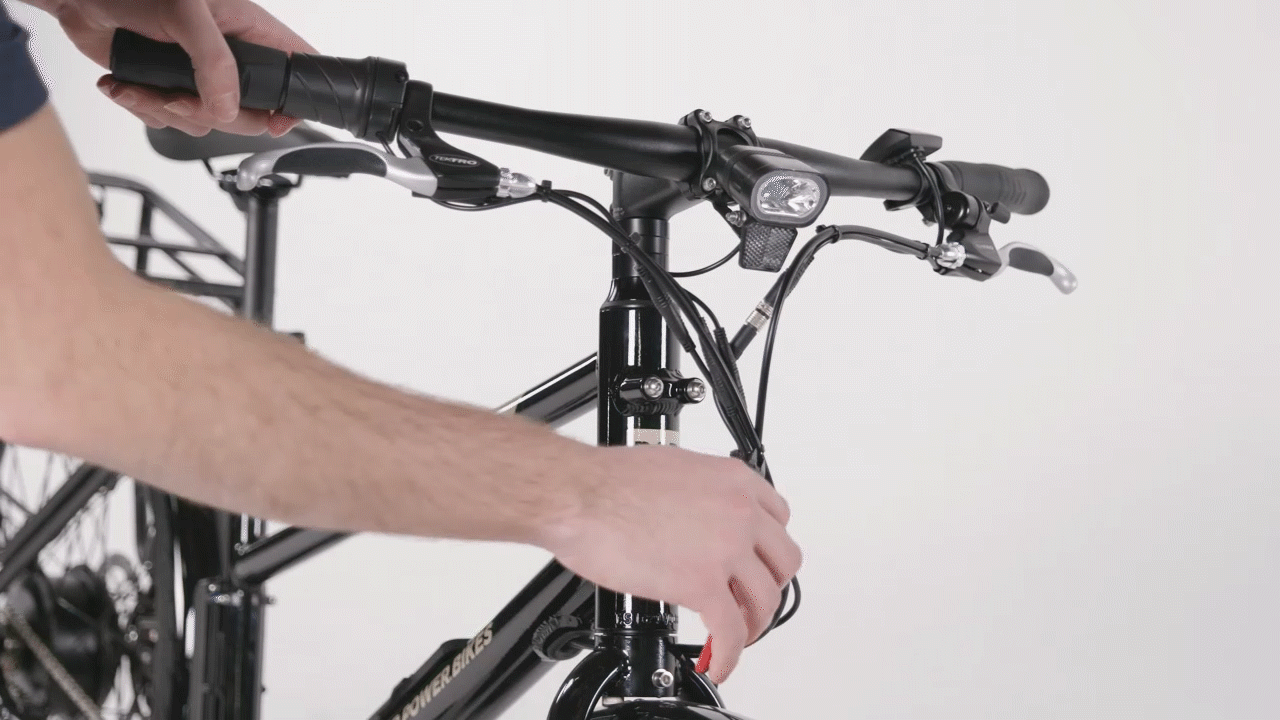
- Start with the silver metal display connector and untwist the metal portion of the connector, then pull each side directly apart, without twisting, to unplug.
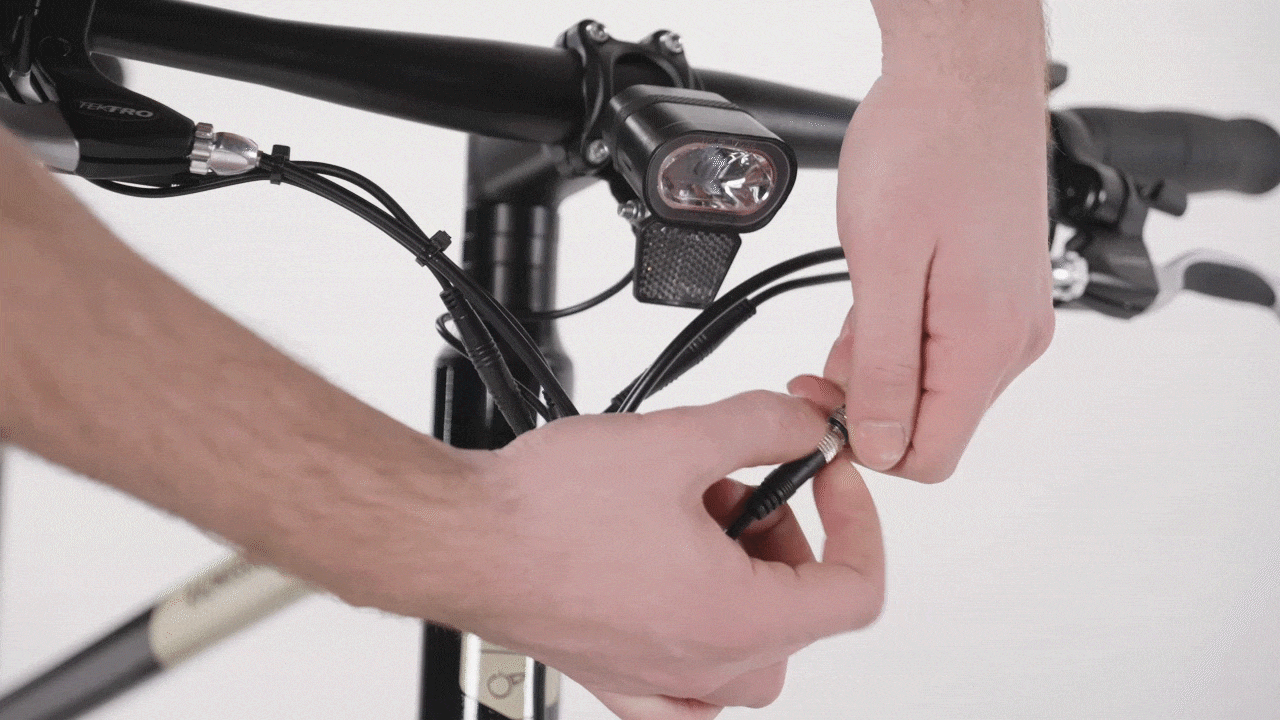
- Unplug all remaining connectors. Pull each remaining connector directly apart without twisting to unplug.
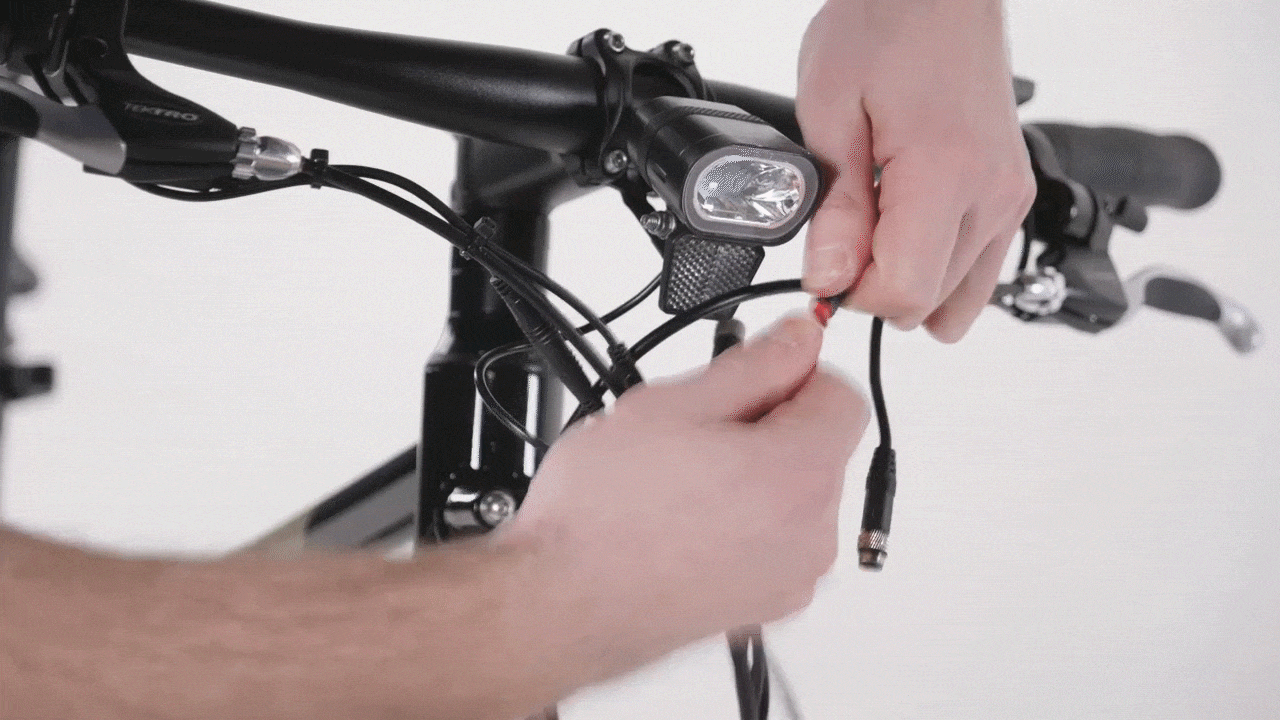
- Snip zip ties securing the cables.
- Unseat the rubber grommets at the upper and lower cable openings of the downtube. Use a dull flat head screwdriver and gentle pinching movements to carefully unseat the rubber grommets. Be careful to not damage the grommets or bike frame during removal.
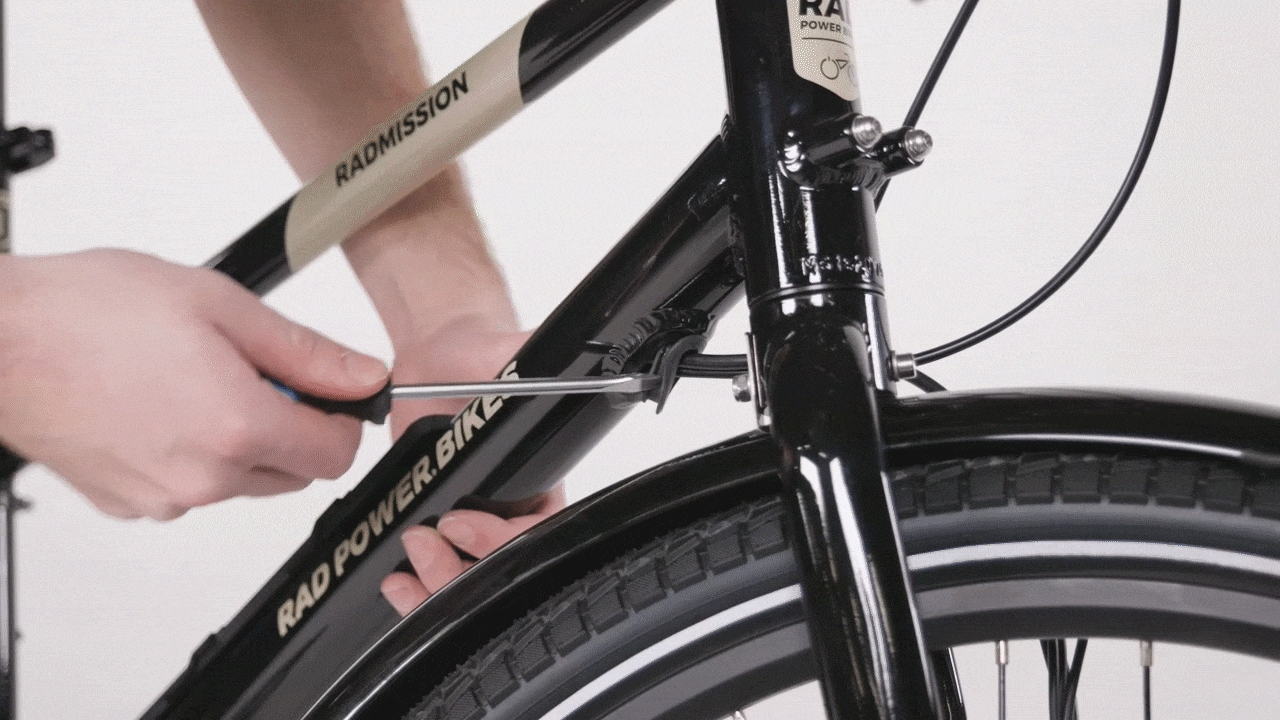
- Unplug the wiring harness connector at the bottom of the downtube.
- Feed some wiring harness cable into the top of the downtube to help create cable slack. At the same time, pull the wiring harness cable at the bottom of downtube until you can easily access the connector.
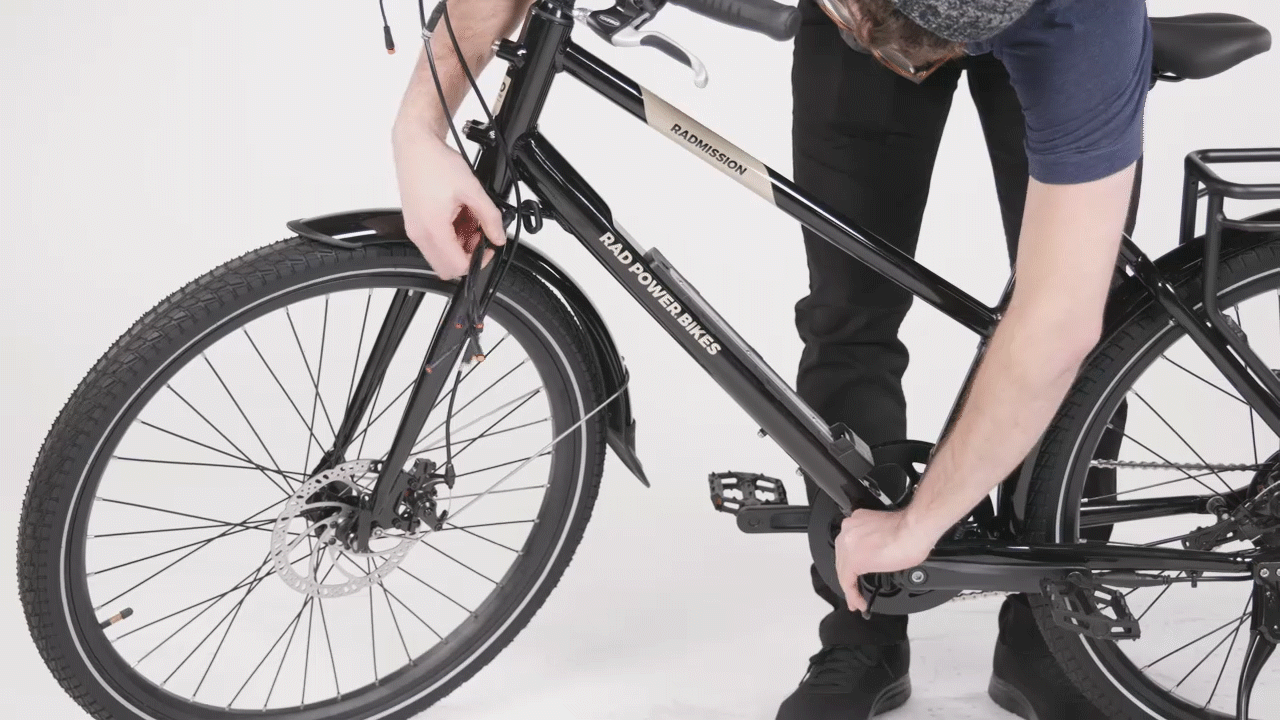
- Pull each side of the connector directly apart, without twisting, to unplug. Snip zip ties to access the connector, if needed. The wiring harness connector is black and has 10 pins inside.
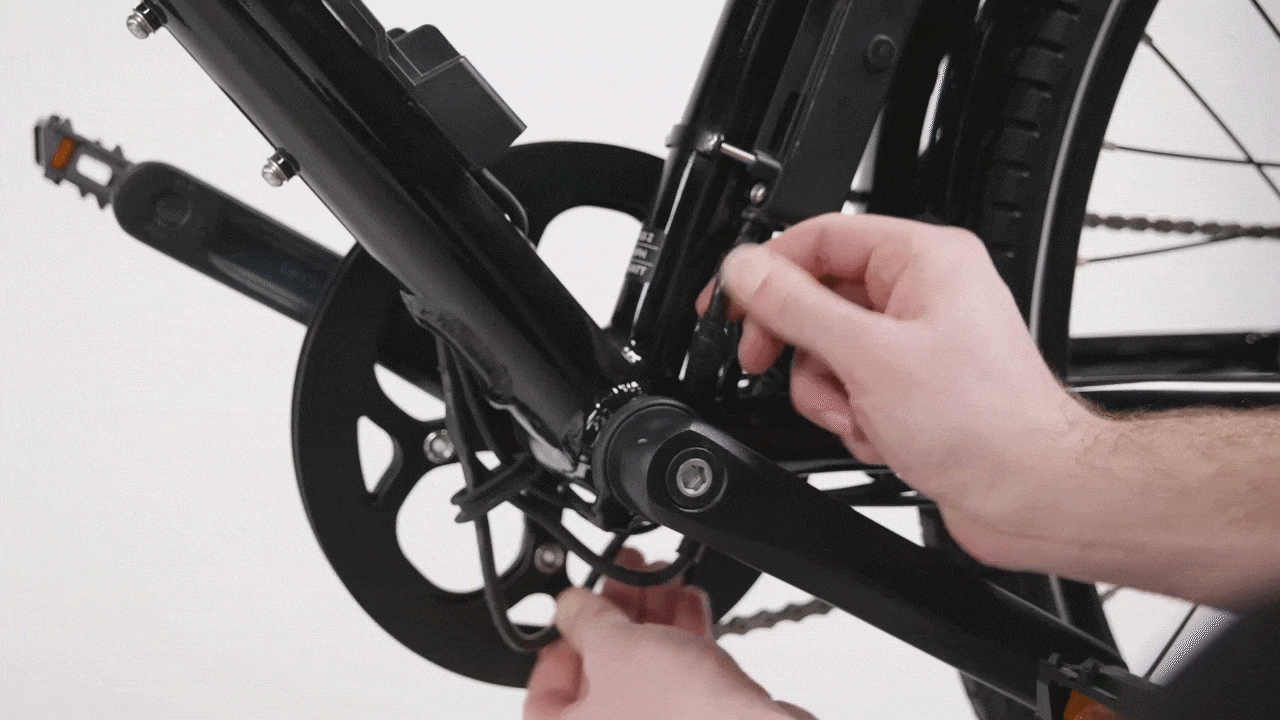
- Feed some wiring harness cable into the top of the downtube to help create cable slack. At the same time, pull the wiring harness cable at the bottom of downtube until you can easily access the connector.
- Secure the string to the connector end coming out of the lower cable opening.
- Check that the string is longer than the length of the downtube.
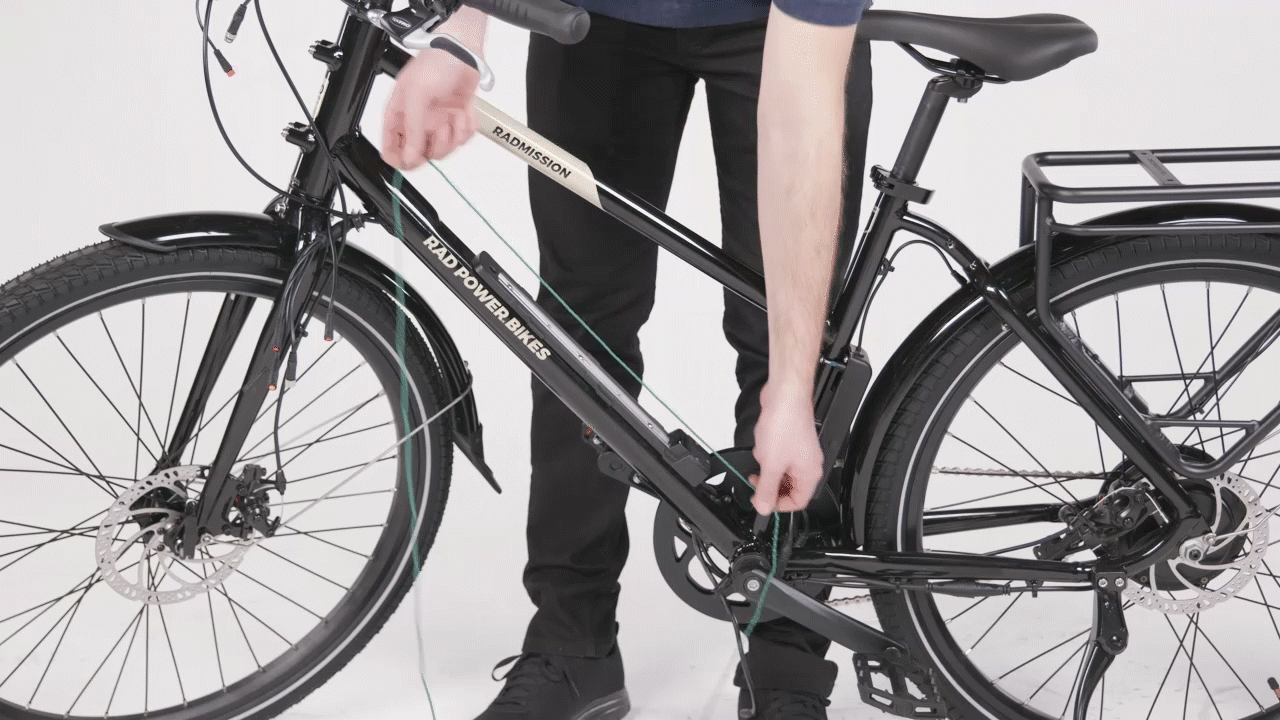
- Tape the string to keep it securely attached to the wiring harness and to help the connector move through the downtube. The string will be used to help install the new wiring harness. Insert the connector end into the lower cable opening.
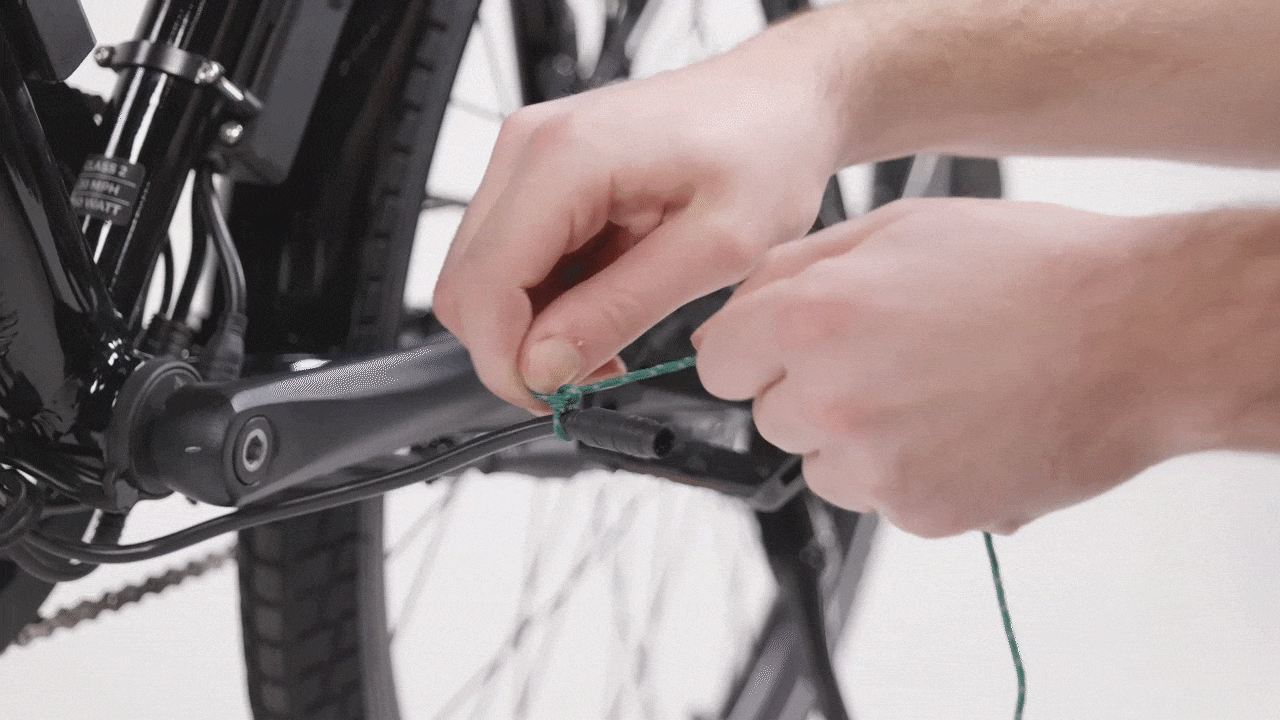
- Check that the string is longer than the length of the downtube.
- Remove the wiring harness fully through the top of the downtube.
- Carefully pull the wiring harness out of the upper cable opening, ensuring the string comes out of both cable openings and remains inside the downtube.
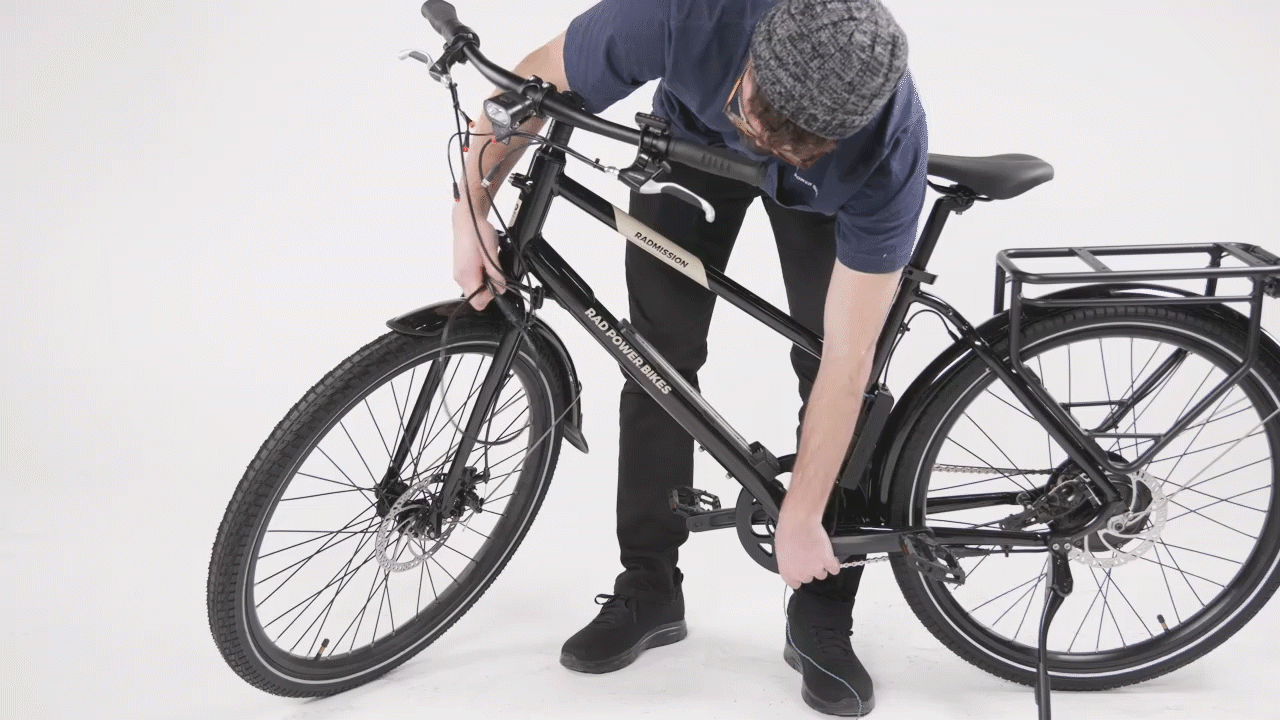
- Pass the upper grommet off the wiring harness and onto the string.
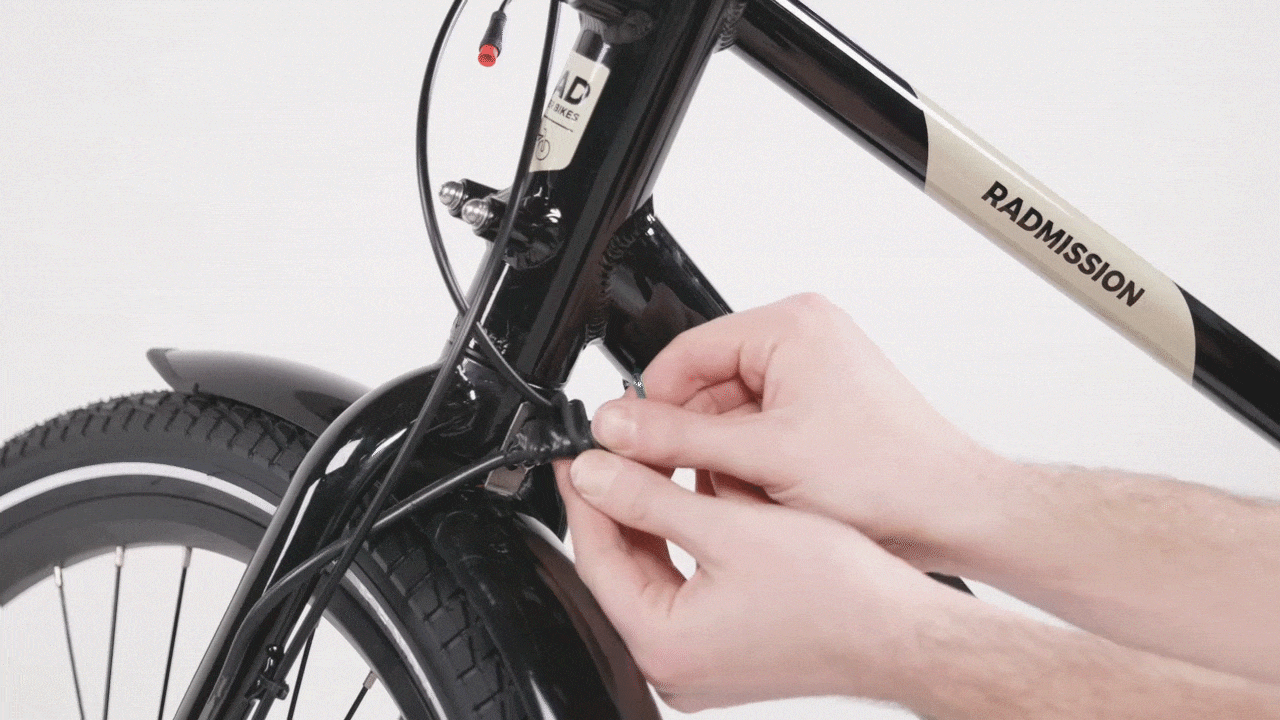
- Remove the string from the wiring harness. Allow the string to hang outside of both cable openings. Recycle the old wiring harness according to local rules.
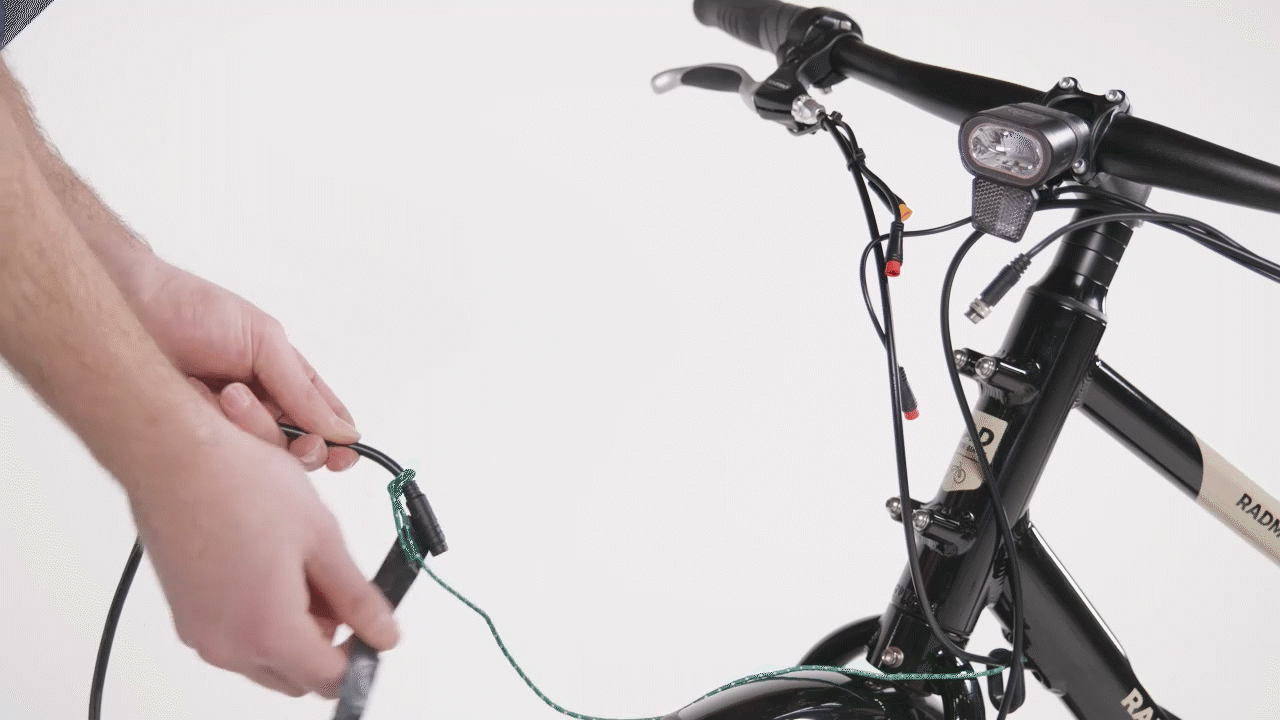
Continue to the next section to install the new wiring harness.
- Carefully pull the wiring harness out of the upper cable opening, ensuring the string comes out of both cable openings and remains inside the downtube.
- Locate the new wiring harness. Orient it so the side with the single connector points toward the back of the back.
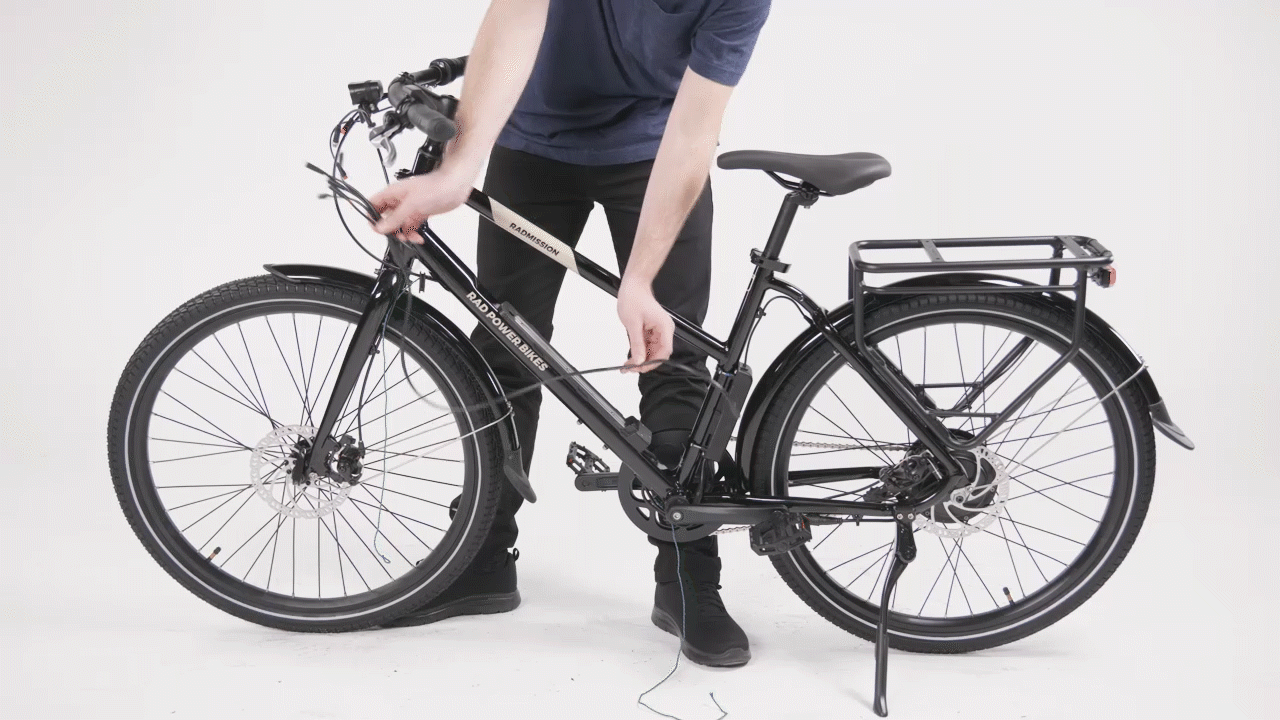
- Secure the string to the new wiring harness. Tie and tape the string coming out of the upper cable opening (circled below) to the single-connector side of the new wiring harness.
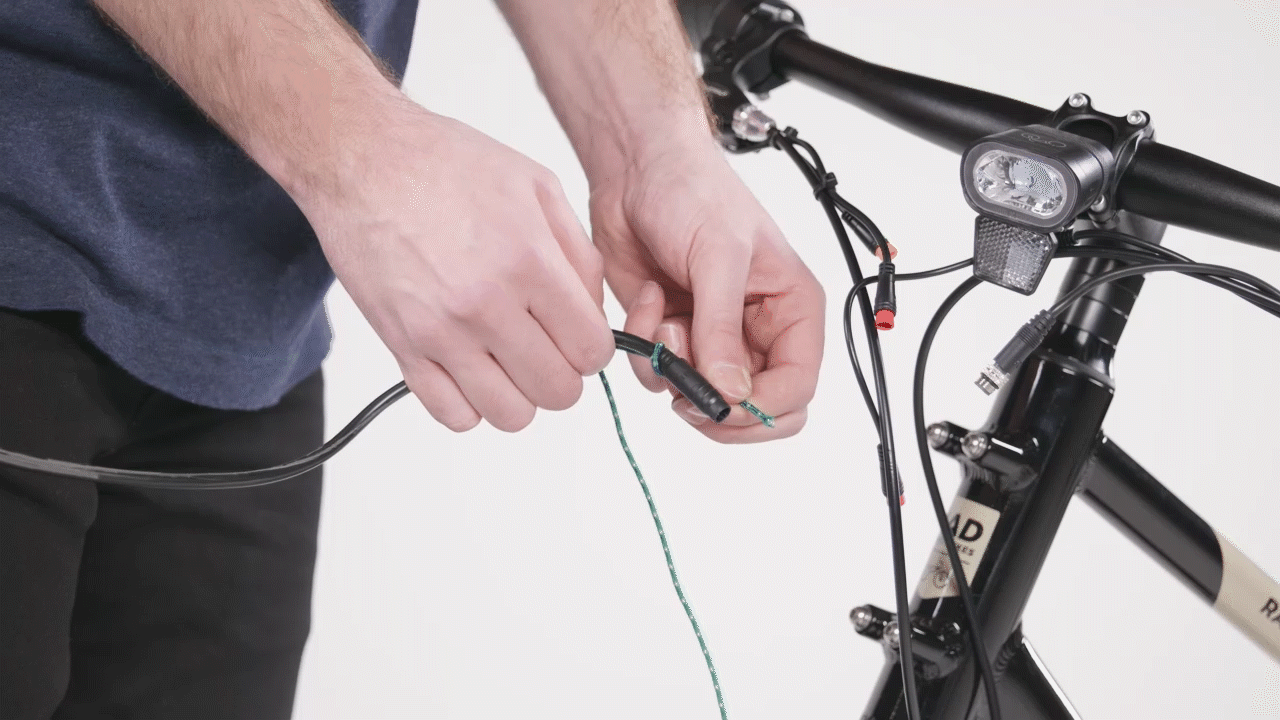
- Pass the connector through the downtube. Pass the connector end through the rubber grommet at the upper cable opening and gently push the connector into the downtube. At the same time, gently pull on the string at the lower cable opening until the connector moves out of the lower cable opening and through the grommet.
Do not use any tools (other than the string and tape) to assist in directing the connector end out of the lower cable opening. Tools like pliers, screwdrivers, etc. can easily damage the connector pins and housing, especially when inserted from the lower cable opening upwards into the downtube.
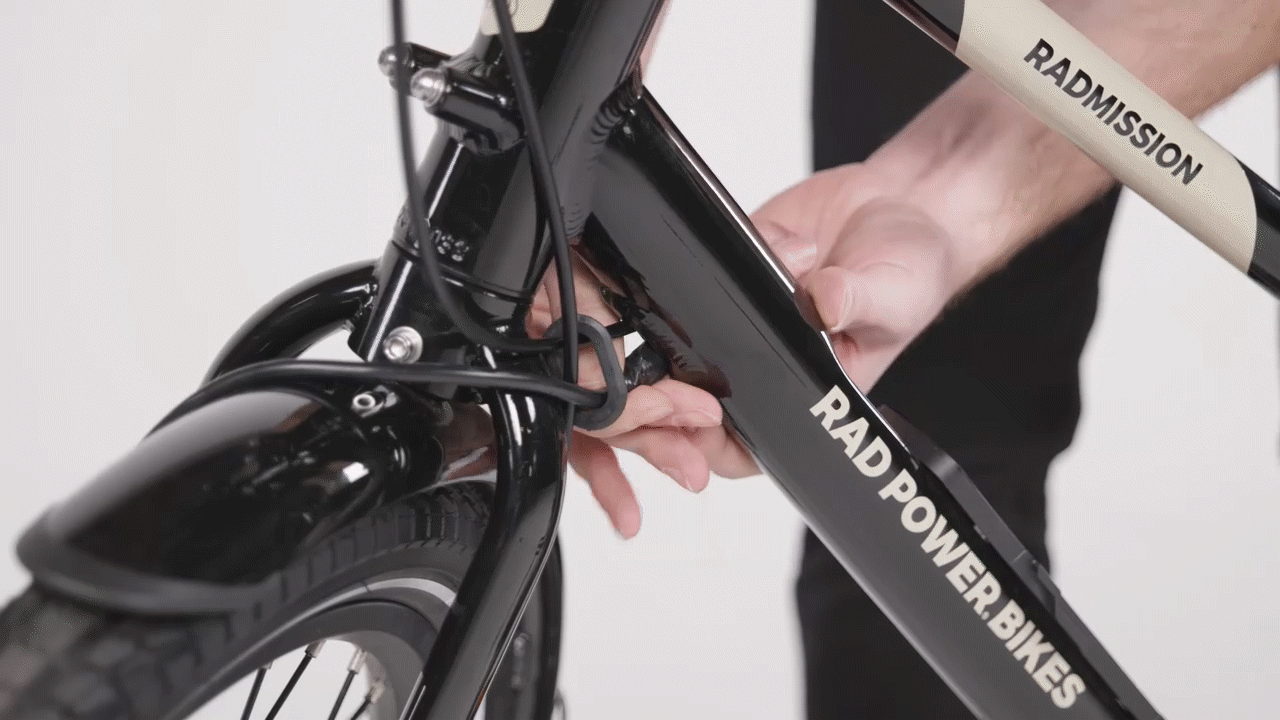
- Connect the wiring harness to the controller. Remove the tape and untie the string from the connector end. Locate both connector ends and ensure the connector end passes through the grommet. Line up the internal notches and pins (and external arrows) and press directly together, without twisting, to connect.
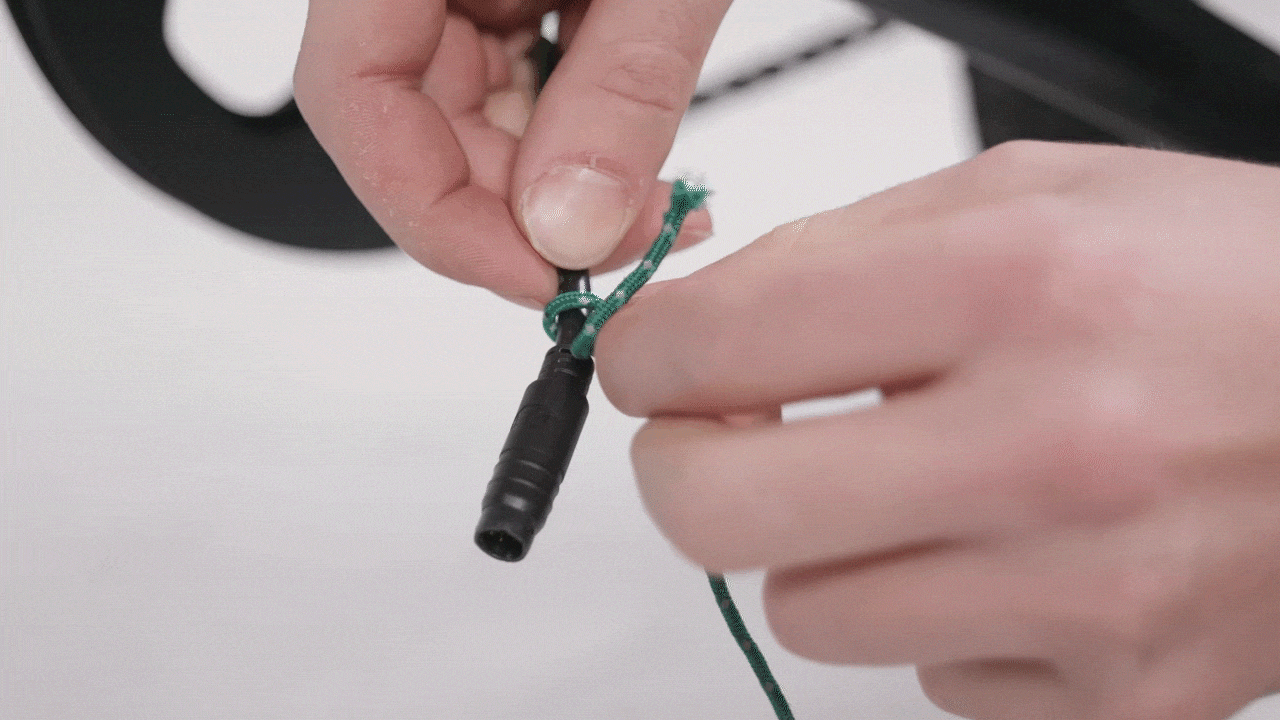
- Reinstall the top and bottom grommets.
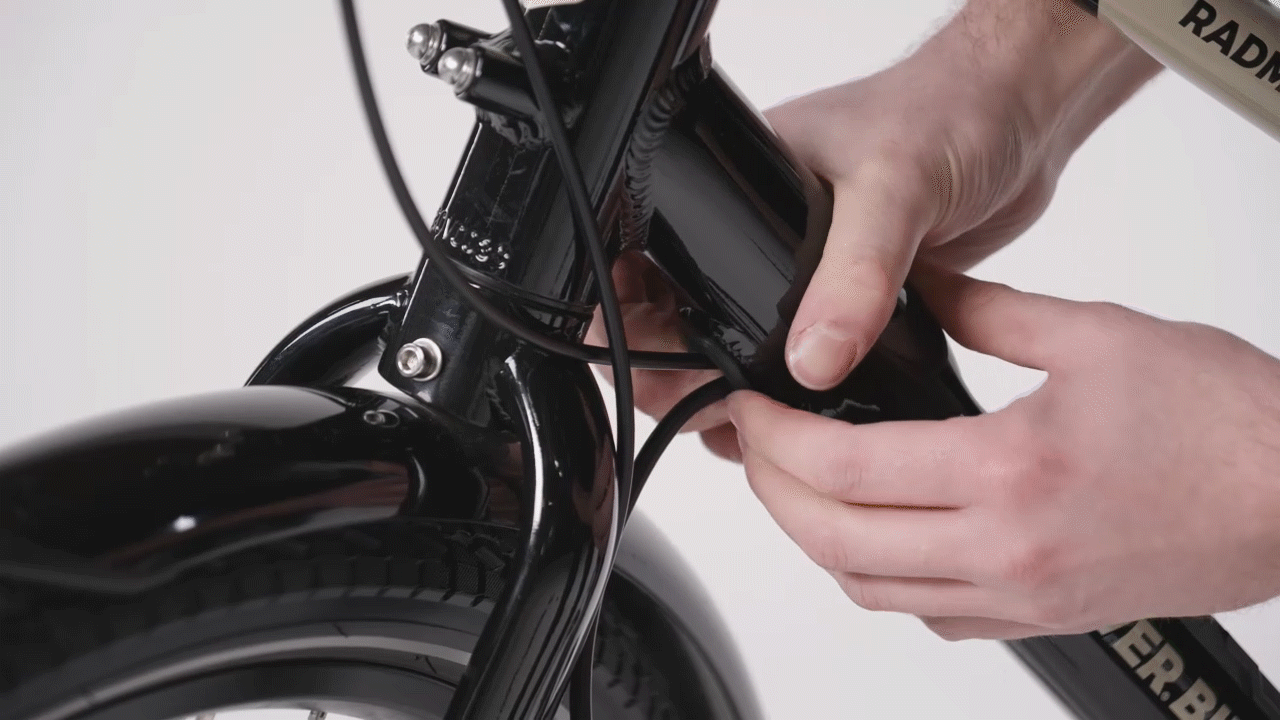
- Adjust the wiring harness at the front of the bike. At the front of the bike, gently pull the wiring harness cable slightly to add cable slack, then pass the wiring harness in between the brake cable and the bike frame.
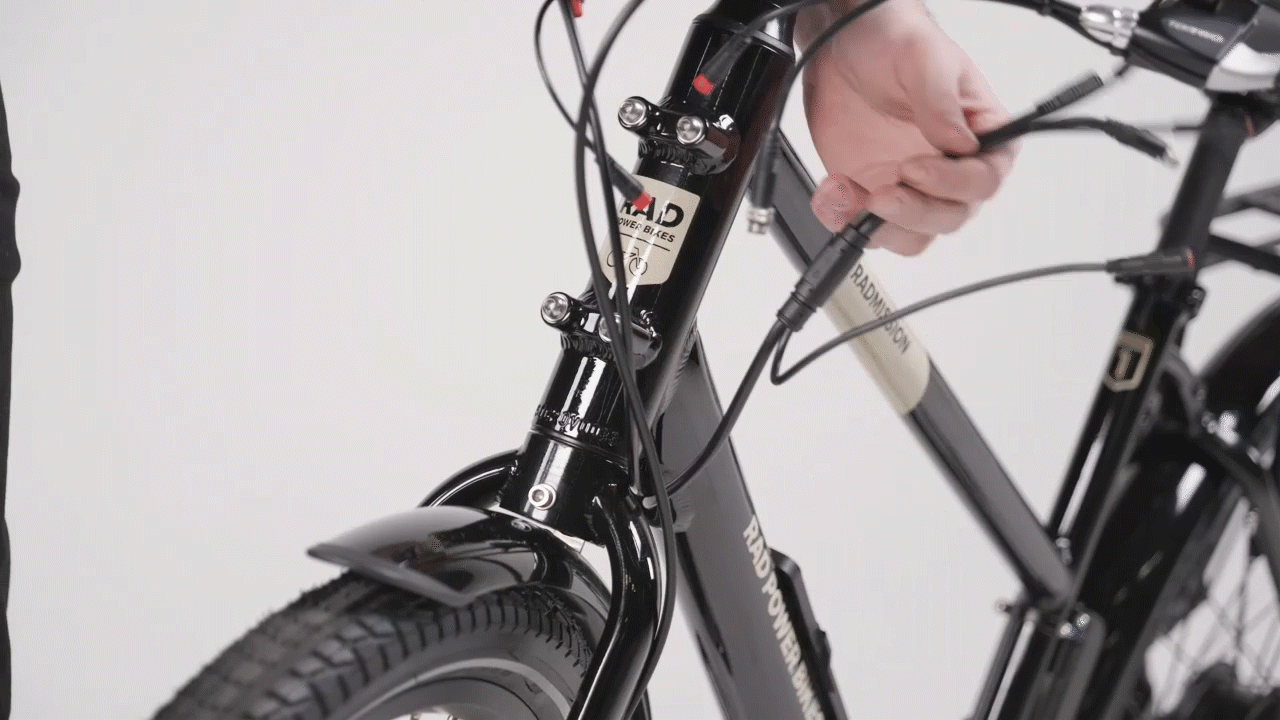
- Plug in the display connector. Line up the internal notch and pins (and external markings) and press directly together, without twisting, to connect. Then twist the metal portion together fully.
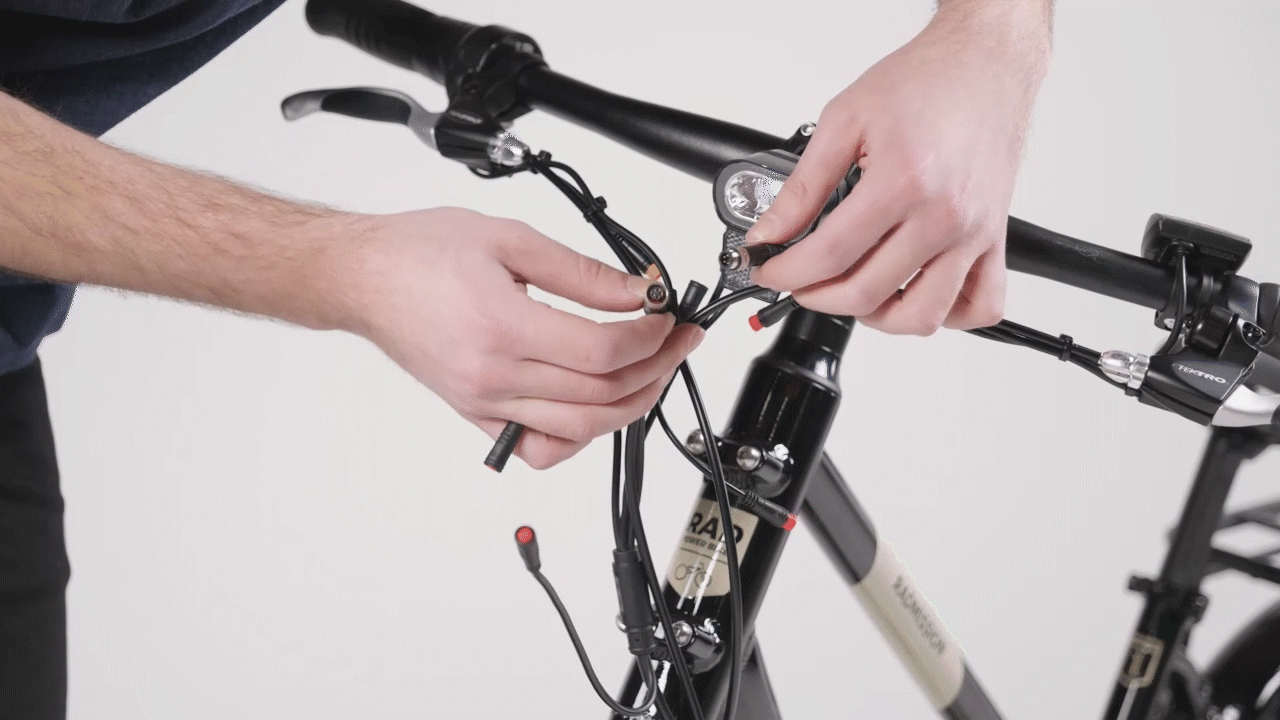
- Plug in the headlight connector. Trace the cable coming from the bottom of the wiring harness junction, and locate the matching connector end coming out of the headlight. Line up the internal notches and pins (and external arrows) and press directly together, without twisting, to connect.
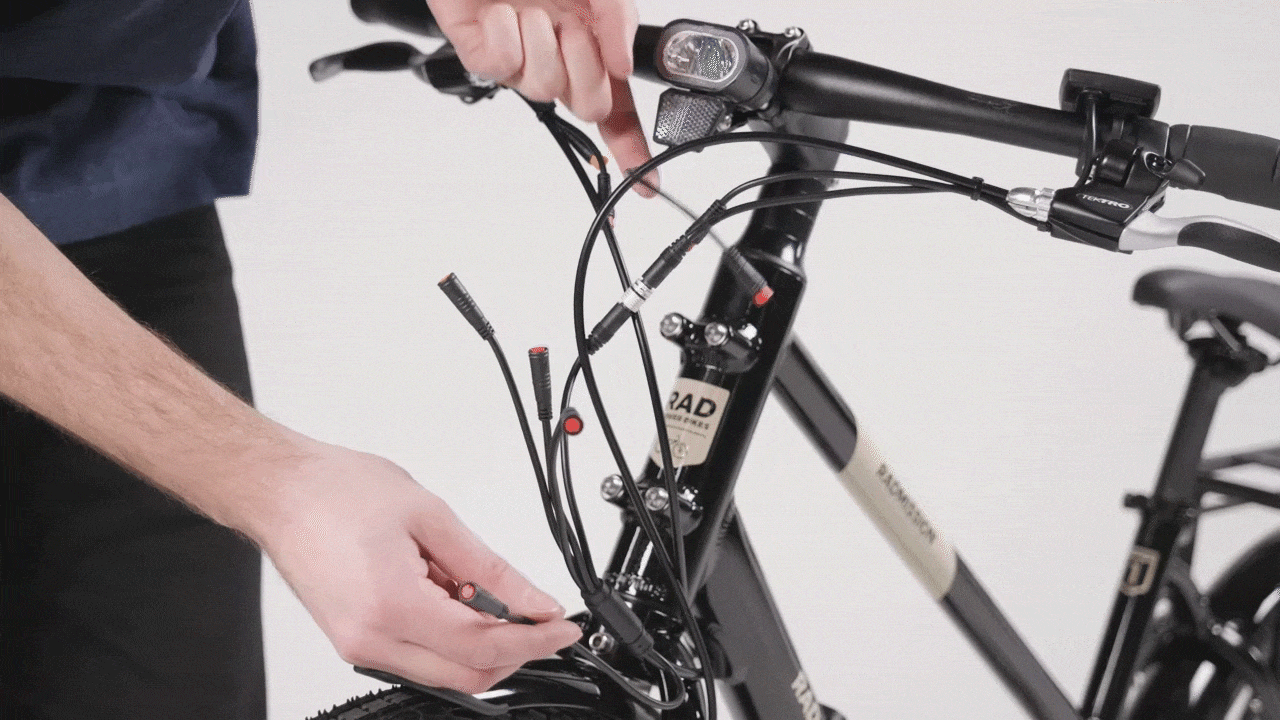
- Plug in the remaining connectors.
- Locate the wiring harness connector ends and the matching connector ends. Trace the cable from the part to the connector end and ensure the connectors match.
- Line up the internal notches and pins (and external arrows) and press directly together, without twisting, to connect.
Do not plug in a connector to the wiring harness if it does not match in color and shape. Doing so could cause irreparable damage to the connector, the part, or the wiring harness.
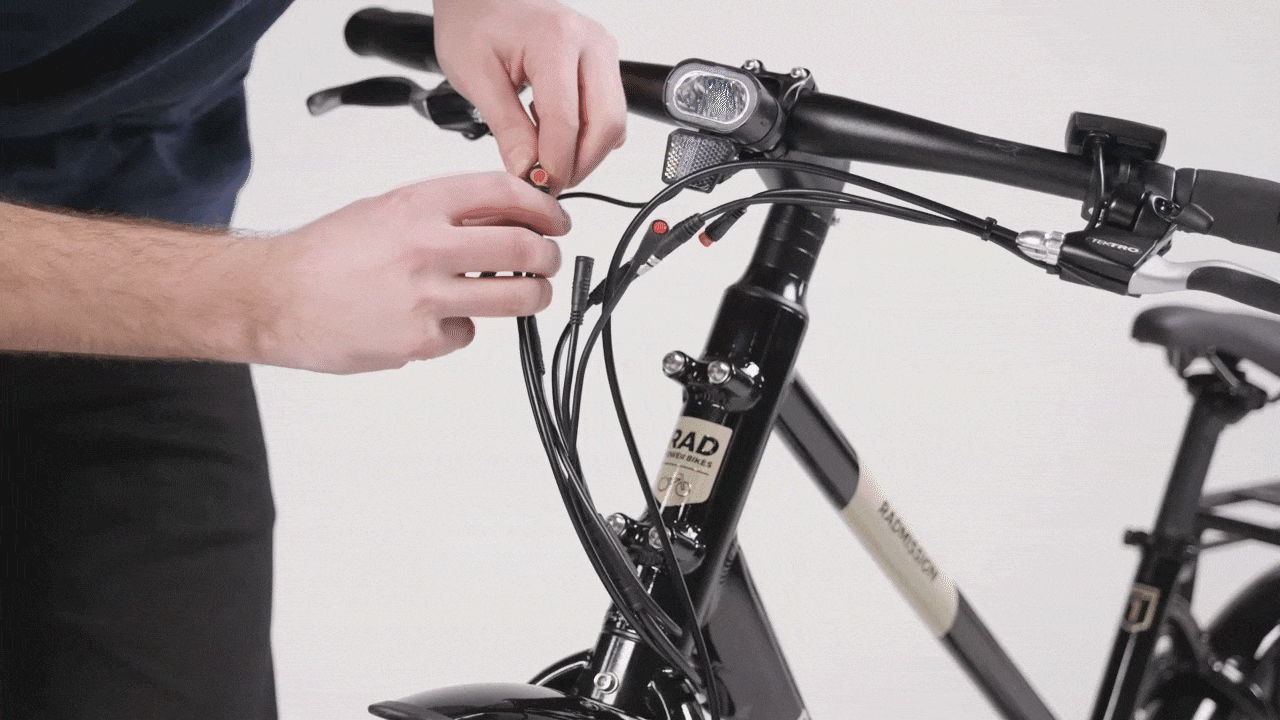
- Secure cables with zip ties. Trim the zip ties to be flush and smooth.
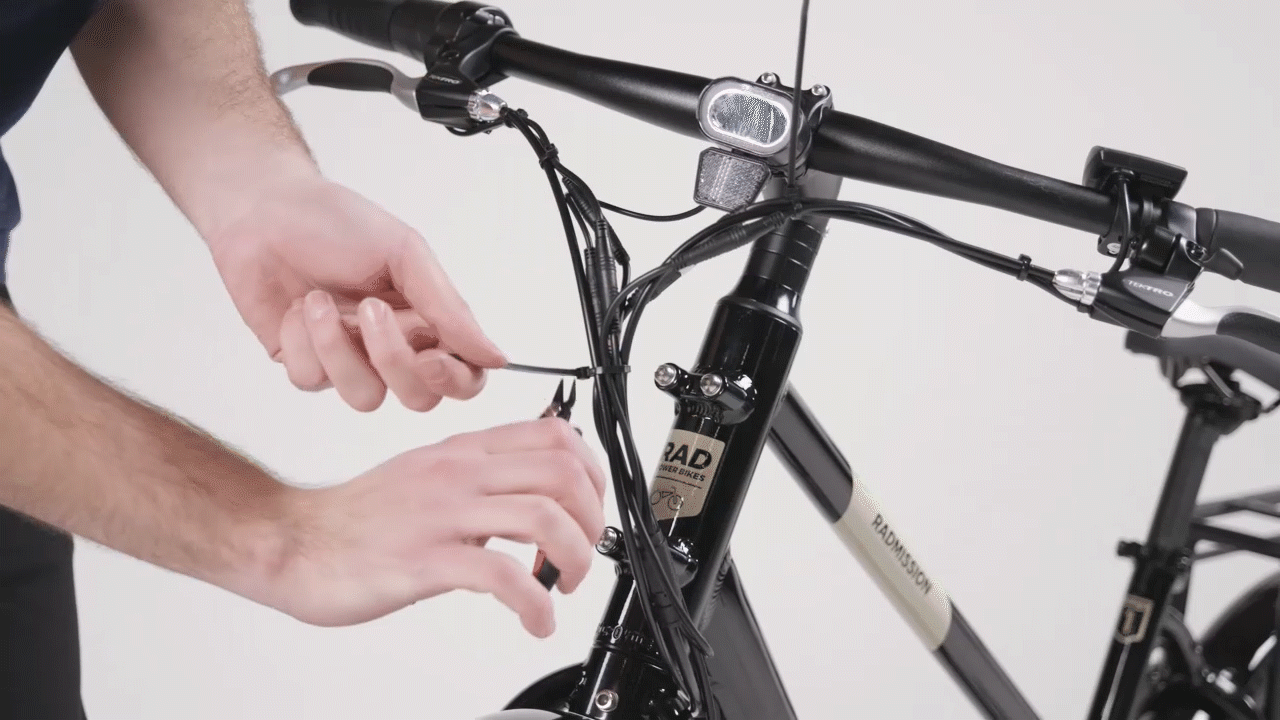
- Rotate the handlebar to ensure it can move freely and that there is enough cable slack. Check that all cables are free from any moving parts.
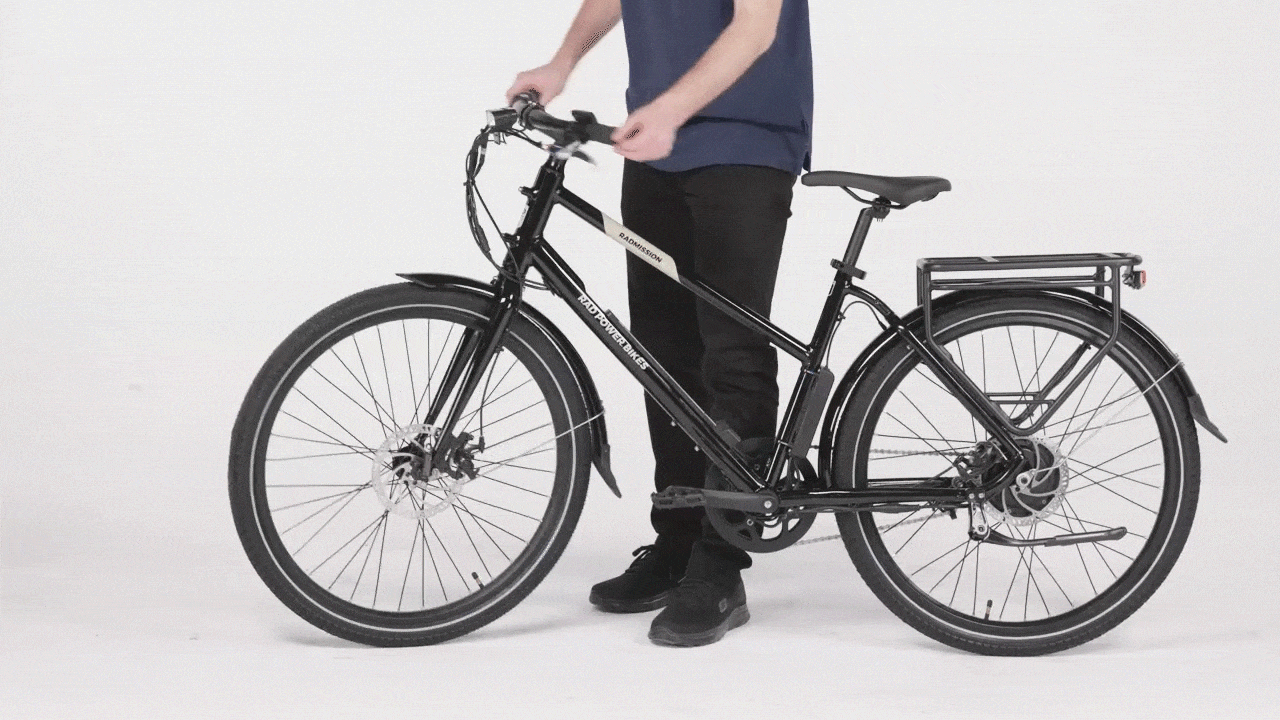
- Reinstall the battery and test the bike fully before riding.
